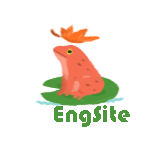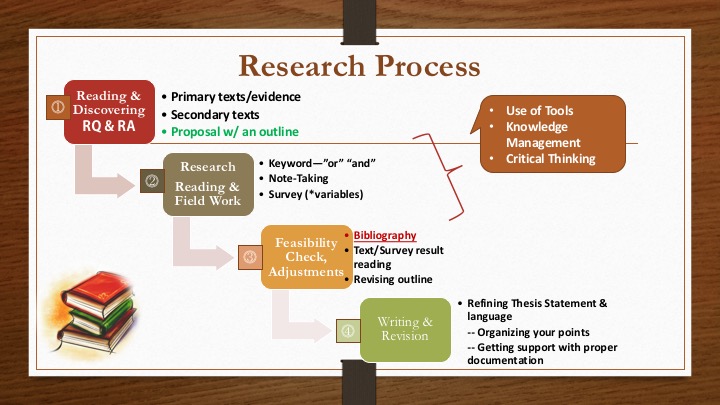Section C
Junior Composition and Conversation¡GCourse Introduction (Sec. C Spring 2017)
Objectives: (Same with last semester)
- General
-- Generate ideas, develop critical thinking and become aware of multiple perspectives;
-- Organize and express your ideas effectively and correctly in writing and speaking to meet various communicative goals and audience needs;
-- Recognize your strengths and weaknesses in English (grammar and vocabulary learning, speaking, writing, communication and writing processes) and adopt learning strategies in continuous self-improvement;
-- Set project goals and design methods to carry them out as well as adjust them as you go along.
- Composition
-- Write effectively to present, develop and support a central argument for various communication purposes.
-- Conduct research and sharpen writing skills, including usages of various rhetorical modes in research Paper & application document writing in Spring.
-- Cite and quote your sources of information by following either MLA or APA format.
- Conversation
-- Articulate ideas clearly and fluently, using the language (word choice, idiomatic expression, sentence structure, style, etc.) appropriately for various communication purposes.
-- Present and support claims in more thought-provoking debates, panel discussions and presentations; develop discussion and presentation skills.
-- Discuss ideas at a level beyond day-to-day needs, using a wide range of vocabulary, including some idiomatic and specialized vocabulary where appropriate.Course Description
Description
The modes we are doing are:
- Application Portfolio (including resume, cover letter and SOP)
- Research paper
We will still make use of the Internet and other multimedia materials as stimulations and
sources of knowledge. We will still use journals (one entry a week in principle; some with assigned topics) to write and communicate spontaneously.
At the same time, we will add new things:
- serious ones: fixing our language problems, and training your self-presentation and social skills;
- fun ones: expanding our knowledge, developing our creativity, brainstorming and panel discussion in class.
Hopefully, we will enjoy learning as automatic English learners with social awareness!
How?To make you more effective and creative automatic learners with more social awareness, this semester we will have three new activities:
1. RP: Developing your research project step by step
Last semester you have produced a proposal, which is step (1). This semester we will take the following three steps to reach its culmination in the oral presentation and final draft to meet Junior CC benchmarks.
2. Formal presentations
a. Job/School Application Interview
b. Panel Discussion: Like News Square, you choose a news event and present multiple perspectives on it. But this time you should be engaged in an informal debate.
c. Formal and engaging presentation in class -- each person will have 10-15 minutes to give an organized presentation on a topic of your interest (preferably your research paper topic). At least three days before your presentation, you should post your topic at EngSite (unit 2), describe it and offer related materials so that your designated respondent can prepare for responding to your speech. Also, you should form some questions for us to think over; questions you will answer in your presentation.
c. Presenting RP at Research Paper Convention3. Self-Learning:
a. All the of projects above involve self-learning, and can help you improve your four skills and critical thinking in English.
b. DT for English Self-LearningHowever, I’d like you to also practice conducting another lively project on three aspects of language learning: grammatical correctness, critical thinking and self-enrichment. The result of this project should be something relevant, impressive and "useful" for you and your target audience.
(See this page for more explanation or download this file.)End Product: A designed learning activity that takes place in class twice, each 30 mins.
(The learning activity can be an ongoing one, with two lessons as demo.)
Procedure:
1) Empathy: form a group on day 1; discuss your interest and problems in order to find a common ground; start to collect materials
2) Ideation: brainstorm in class for means of learning and self-improvement
3) Test and prototyping: lesson (1).
4) Sharing: lesson (2) and reflection on the last day of class.Grading Criteria:
4) whether the prototype is easy to remember and follow
1) class votes on the lessons’ degrees of learner engagement, concreteness and usefulness; no cliche!!!
2) English quality and correctness;
3) creativity.DT for Self-Learning: See this page
As a whole, one general goal is for us to be constantly "self"-improving in thinking, writing and speaking without being alone in doing so. To make us work as a community, we will have group work in class and free interaction via email and at EngSite. In this sense, the class will involve both strict discipline and friendly sharing of ideas and cooperation. I believe you will enjoy the friendly atmosphere as we go along in class, so here let me specify "our" requirements.
Requirements
1. Attendance: No lates or absences allowed! Since this is a workshop, attendance is essential. If you have to be absent, do inform me 'before' class. Only excused absences can be made up for. The final grade will be lowered after the third absence, and six absences means failing the course. Three lates means one absence.
2. Participation: Bring an active and critical mind to class. Always be ready to speak out in class, or to me out of class, about our topics and the class itself. Please make time for group discussions outside of class.
3. Assignments: Papers and journals should all be typed, 1.5 space and following standard paper format.
1). Papers: Each writing assignment for each mode should be typed, with 1.5 spacing, and also be 4 pages in length (about 1000 words).
There should be 2 drafts of each writing assignment (i.e. a first draft and a final draft), except for the Research Paper in the second semester. Students should submit 4 drafts of the Research Paper. Teachers can ask their students to turn in more than 2/3 drafts of a writing assignment and if necessary.
2). 16-page journals -- In principle, one entry every other week, and two pages each entry (16 pages altogether), to be collected 3 times (3+3+2). Your journals will definitely include some free entries for the purpose of sharing and communication. Some will be used for you to record and reflect on your self-learning. More details to be explained in class.
- Deadlines: Deadlines are negotiable before they are set in class. But once they are agreed on, you have to keep them. The grade of the late papers will be lowered.
- No plagiarism of any sort! --Don't copy ideas or passages from others' writing. If you want to revise your old paper, please let me know first.
- Change of topics: Please inform me if you want to change your topic after the first draft. As a coach of a writing "team," I need to be involved in your writing process in order to help. As for research paper, you will "have to" discuss with me if you want to change your topic after submitting the proposal.
4. English Proficiency: Please note that you will start to meet CC III benchmarks towards the end of the first semester, and confirm it before research paper convention (in the second semester). Also, you need to meet department’s graduation benchmarks (http://www.eng.fju.edu.tw/undergraduate/curriculum/credit/graduation_benchmark_100c.pdf) Failure to pass the CC III benchmarks means failing the whole course, and failing to meet the department benchmarks, staying in the department longer than expected. To prepare you for these challenges, this semester I will always mark the errors which you should know how to fix yourselves and then avoid later with an ¡¹. Please get help from me or others if you do not know how to fix them. In the meantime, we will also practice taking some language proficiency tests.
Grading policy: (subject to change)
Conversation --
Journals 10%; Class Participation 10%
Mock job interview: 20%
RP convention 20%
RP Mock Dry-Run 10%
Panel Discussion 10%
DT for Self-Learning group reports and interactions 20% (each lesson 10%)Composition—
Mid-Term 25%,
Application 25%,
Research Paper (draft 3 & 4) each 25%
CCIII RP Requirements
a. The research paper should be typed with 1.5 spacing, and should be 8-10 pages in length (excluding the outline, the appendixes and the works cited). Students should submit 4 drafts of the Research Paper in the Spring semester.
b. Final Research Paper Word Length: 2800 words (about 8 1.5-spaced pages) - 3500 words (about 10
1.5-spaced pages)
Maximum. The maximum word length is to be set at the teachers’ own discretion different student abilities.
c. The research paper should have a clear thesis statement/aim and/or research questions.
d. The research paper should have a clear organization (including clear divisions and logical transitions
between different sections).
e. The research paper should have less than 1% grammatical and spelling errors (meaning that there
should be fewer than 8 errors per 800-word page)
f. The research paper can be based either on first-hand data collection and analysis, or on textual analysis
and observations. The minimum number of questionnaires or interviews for the data collection should be
30 questionnaires and 5 interviews (students can choose to do either).
g. The research paper should exhibit proper documentation following the MLA or APA formats.
h. The research paper should include a minimum of six secondary sources, with at least TWO non-
Internet media sources.¡@
¡@






